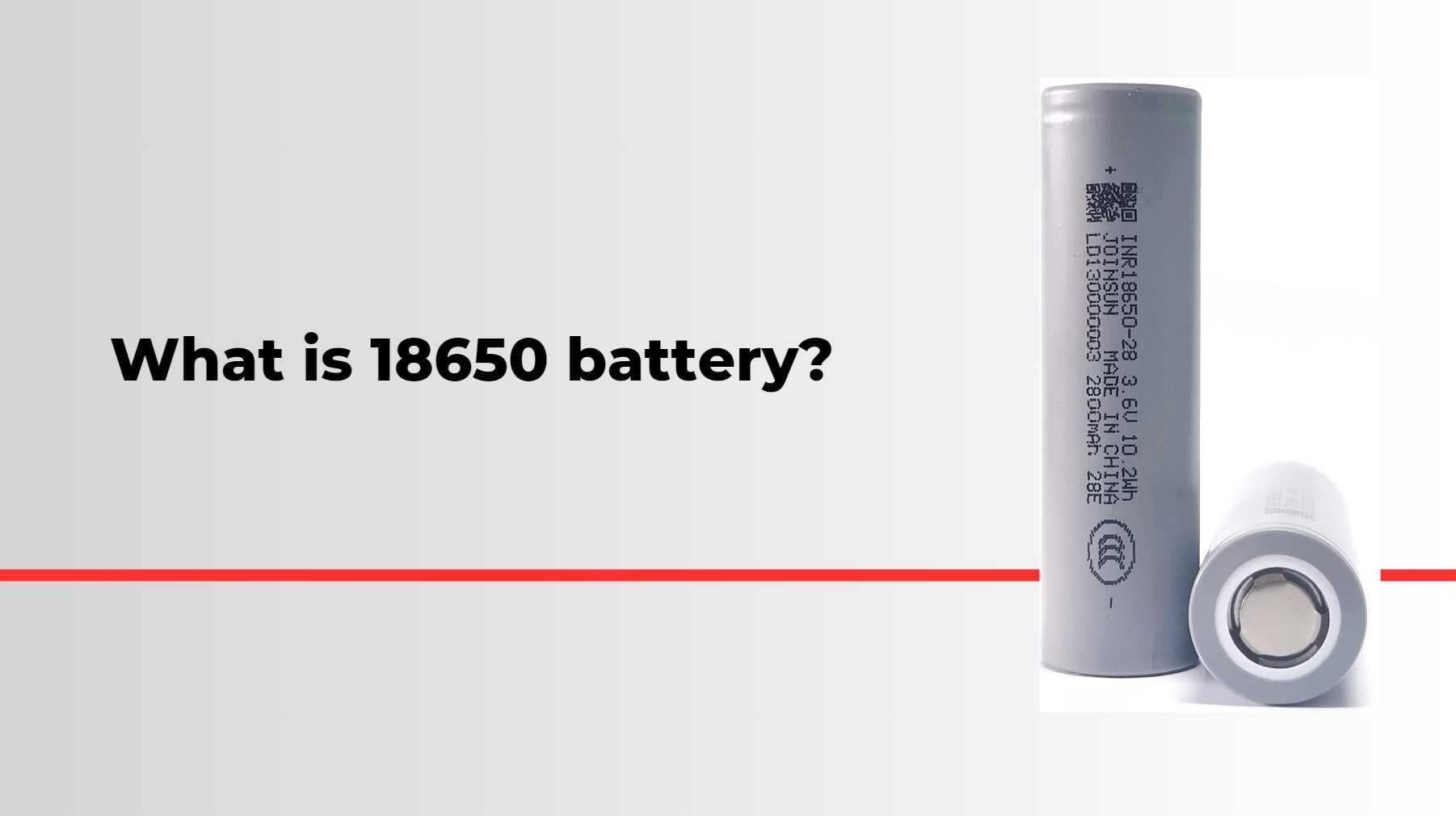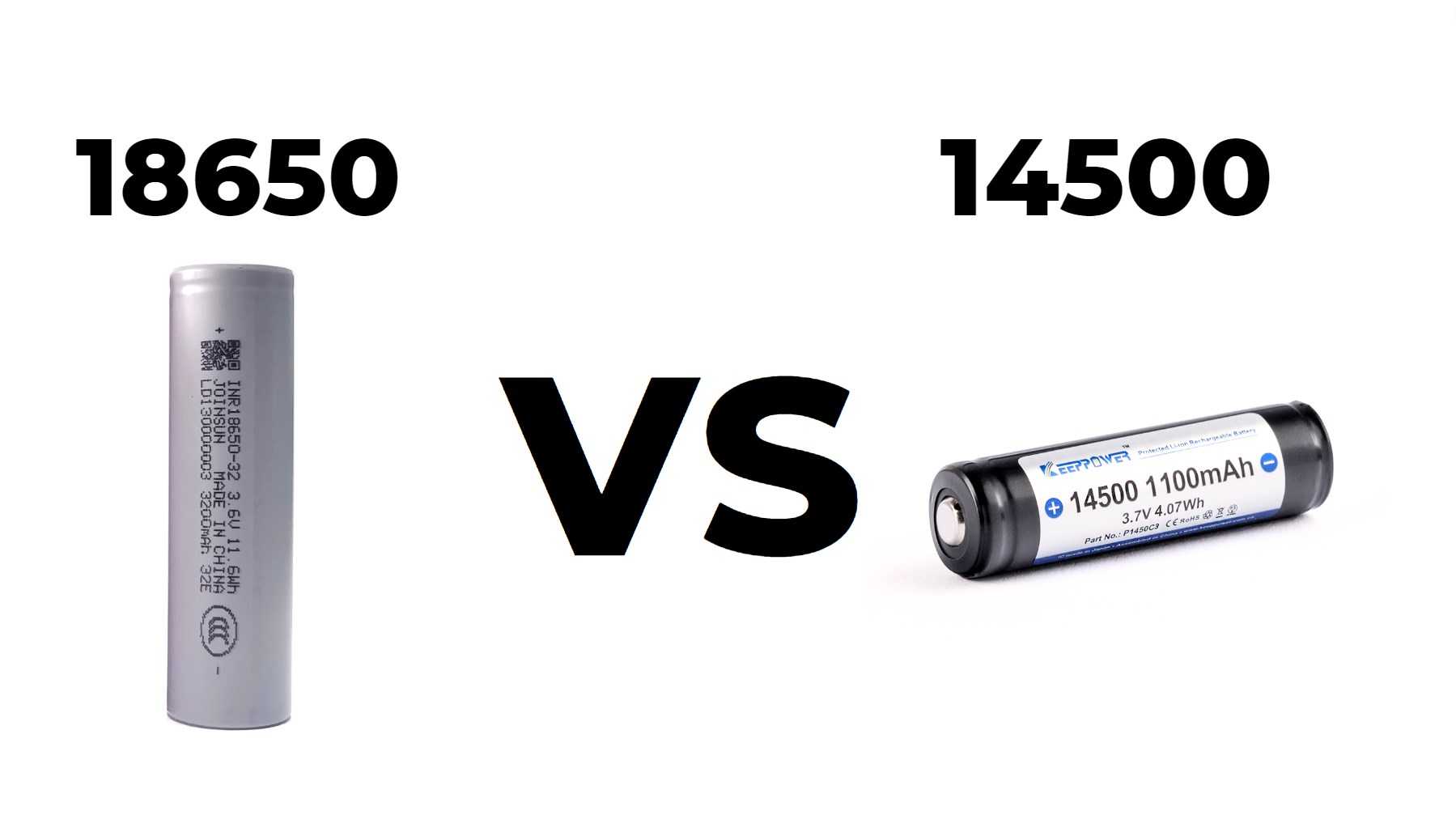The 14500 battery measures 14mm in diameter and 50mm in length, with a capacity of 600-900mAh, while the 18650 battery is larger at 18mm in diameter and 65mm in length, offering capacities of 1800-3500mAh. The choice depends on the device’s size and power requirements.
When it comes to rechargeable batteries, the 18650 and 14500 lithium-ion battery types are among the most popular choices for a variety of applications. From powering electronic devices to serving as energy storage solutions in electric vehicles, understanding the differences between these two battery types is essential for making informed decisions. In this comprehensive comparison, we will explore their specifications, advantages, disadvantages, and suitable applications.
Understanding 18650 and 14500 Batteries
1. Battery Dimensions
- 18650 Battery: The name “18650” refers to the battery’s dimensions: 18mm in diameter and 65mm in length. This cylindrical battery is widely used due to its larger capacity and ability to deliver higher currents.
- 14500 Battery: The “14500” designation indicates a diameter of 14mm and a length of 50mm. This smaller size makes it suitable for compact devices but results in lower capacity compared to the 18650.
2. Capacity and Energy Density
- Capacity:
- The typical capacity of an 18650 battery ranges from 1800mAh to 3500mAh, depending on the specific model and manufacturer.
- In contrast, the 14500 battery generally has a capacity between 600mAh to 1200mAh.
- Energy Density: The energy density of both batteries can vary by manufacturer, but generally, the 18650 offers a higher energy density due to its larger size.
Advantages of Each Battery Type
Advantages of 18650 Batteries
- Higher Capacity: With capacities often exceeding 3000mAh, 18650 batteries can power devices for longer periods without needing a recharge.
- Better Performance Under Load: They are capable of delivering higher currents, making them ideal for high-drain applications such as electric vehicles and power tools.
- Widespread Availability: The popularity of the 18650 format means that they are widely available and compatible with many devices.
Advantages of 14500 Batteries
- Compact Size: The smaller dimensions make the 14500 battery suitable for compact electronic devices like flashlights and small gadgets where space is limited.
- Lightweight: Due to their smaller size, they are lighter than 18650 batteries, making them easier to carry in portable applications.
- Cost-Effective: Generally, 14500 batteries tend to be less expensive than their larger counterparts, making them a budget-friendly option for less demanding applications.

Disadvantages of Each Battery Type
Disadvantages of 18650 Batteries
- Size and Weight: Their larger size makes them less suitable for compact devices where space is a premium.
- Higher Cost: While prices can vary, the larger capacity often comes with a higher price tag compared to smaller batteries like the 14500.
Disadvantages of 14500 Batteries
- Lower Capacity: With a maximum capacity typically around 1200mAh, they may not last as long as an 18650 under heavy use.
- Limited Current Output: They are not designed for high-drain applications; using them in such scenarios can lead to quicker depletion or damage.
Applications for Each Battery Type
Common Uses for 18650 Batteries
- Electric Vehicles (EVs): Due to their high capacity and discharge rates.
- Laptops and Power Tools: Commonly found in devices requiring sustained power.
- High-Power Flashlights: Ideal for flashlights that require significant brightness over extended periods.
Common Uses for 14500 Batteries
- Compact Flashlights: Perfect for small LED flashlights where space is limited.
- Small Electronic Devices: Such as remote controls or portable gadgets.
- Toys and Gadgets: Frequently used in battery-operated toys due to their lightweight nature.
Data Chart: Comparison of 18650 vs. 14500 Batteries
| Feature | 18650 Battery | 14500 Battery |
|---|---|---|
| Diameter | 18mm | 14mm |
| Length | 65mm | 50mm |
| Typical Capacity | 1800mAh – 3500mAh | 600mAh – 1200mAh |
| Maximum Discharge Current | Up to 30A | Typically up to 10A |
| Applications | EVs, laptops, power tools | Flashlights, small electronics |
FAQs About 18650 vs. 14500 Batteries
Can I use a 14500 battery instead of an 18650?
No, due to their different sizes and capacities, you cannot interchange these batteries without proper adapters or modifications.
How do I know which battery is right for my device?
Check your device’s specifications; it should indicate which type of battery is required based on size and capacity needs.
Are there safety concerns with either battery type?
Both battery types can be safe when used correctly; however, overcharging or using incompatible chargers can lead to risks such as overheating or leakage.
Latest News on Lithium Battery Technology
Recent advancements in lithium battery technology continue to focus on improving efficiency and sustainability:
- New developments in solid-state batteries promise higher energy densities while enhancing safety features.
- Research into recycling processes aims to recover valuable materials from used lithium batteries, contributing to environmental sustainability efforts.
Lithium 18650 VS 14500
Conclusion
In summary, both the 18650 and 14500 batteries have distinct advantages and disadvantages that make them suitable for different applications. Understanding their specifications helps users make informed decisions based on their specific needs. Whether you require high capacity and power output or compact size and affordability, selecting the right battery type ensures optimal performance in your devices.For customized lithium solutions tailored specifically to your needs—whether for automotive applications or renewable energy systems—contact Redway Battery today for a quick quote!
FAQs
Which battery has a longer lifespan, 14500 or 18650?
Typically, 18650 batteries have a longer lifespan than 14500 batteries, lasting up to 2,000-3,000 cycles compared to the 300-500 cycles of 14500 batteries. This makes 18650 batteries more suitable for high-drain applications requiring frequent use.
What are the common applications for 14500 and 18650 batteries?
14500 batteries are commonly used in compact devices like flashlights, portable fans, and some electronic cigarettes. In contrast, 18650 batteries are preferred for laptops, electric vehicles, and high-performance flashlights due to their higher capacity and energy density.
Are 14500 batteries rechargeable?
Yes, 14500 batteries are rechargeable lithium-ion cells. They can be charged multiple times using compatible chargers, making them a cost-effective and environmentally friendly option compared to single-use alkaline batteries.
Can I replace an AA battery with a 14500 battery?
Yes, a 14500 battery can replace an AA battery in devices designed for it due to their similar size. However, ensure that the device can handle the higher voltage (3.6V) of the 14500 compared to the standard AA (1.5V) to avoid damage.
Which battery type is more cost-effective?
While 14500 batteries have a lower initial cost compared to 18650 batteries, their shorter lifespan means they may not be as cost-effective over time. For long-term use in high-drain devices, investing in 18650 batteries may provide better value due to their durability and longevity. This comparison highlights the key differences between 14500 and 18650 batteries, helping consumers make informed decisions based on their specific needs and applications.




